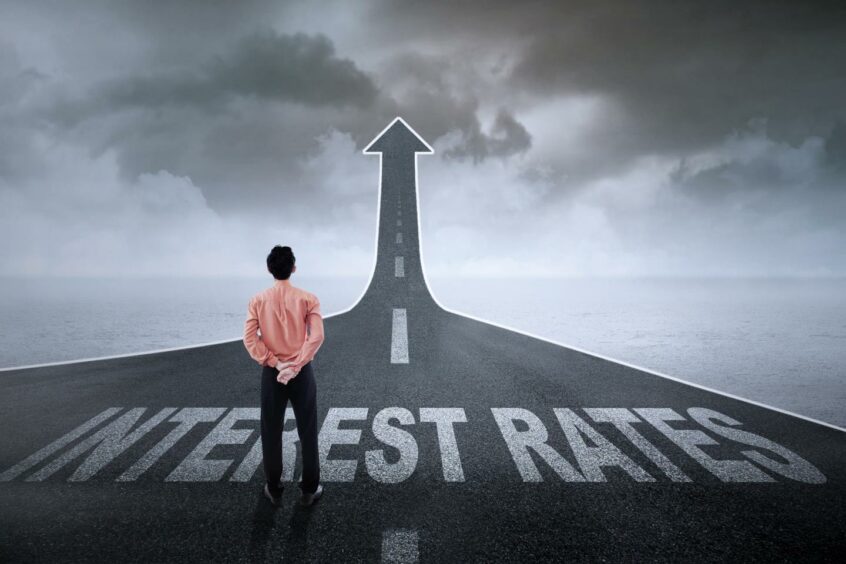The Bank of England’s rate-setting monetary policy committee (MPC) has signalled it is getting ready to increase interest rates for the first time since August 2018.
A rise in rates will see mortgages become more expensive for anyone not on a fixed-rate deal, but could see savers earn more interest.
In the minutes to its latest meeting, the MPC said an increase would be “necessary” over the coming months in order to return consumer price index inflation “sustainably to the 2% target”,
However, it added it was not yet time for the move, citing “near-term uncertainties” in the economy.
The committee voted 7-2 to maintain the base rate at 0.1%. Its next meeting is on December 16.
Bank of England Governor Andrew Bailey told BBC Radio 4’s Today programme interest rates would rise but only when there are signs of demand and wages rising, rather than sky-high prices for global commodities such as computer chips and gas.
He also said the Bank would seek more data on the end of the furlough scheme before making any decision.
Controversial decision
Rates have been at the all-time low of 0.1% since March 2020, when the MPC slashed them in an effort to protect the economy from the impact of the coronavirus pandemic.
Assuming it is passed on in full by banks, an increase to 0.25% will add around £120 to the cost of typical mortgages, but net savers just £15 extra in interest a year for every £10,000 they have in the bank.
James Andrews, senior personal finance editor at money.co.uk, said: “A decision to raise rates is a controversial one.
“On the one hand, the Bank of England is tasked with the job of keeping inflation under control. On the other it is asked to keep the economy growing.
“While making borrowing more expensive and savings more rewarding should, theoretically, see people spend less in shops and put pressure on retailers to cut prices – that doesn’t work if what’s pushing prices up is the cost of energy or raw materials.
“Rather than pushing prices down, a rise in rates might simply force people to spend less – as more of their money is taken from pay packets by mortgages.
“That could be terrible news for an economy still struggling to escape the impact of coronavirus.”
Confidence risk
But Mr Andrews warned the markets may lose confidence in the Bank’s ability or willingness to tackle inflation unless it raises rates soon, with knock-on effects on the pound and how much the UK Government pays to borrow money.
He added: “A rise in rates is typically passed on to the public in the form of bigger monthly payments for anyone on tracker or standard variable rate mortgages, while people on fixed-rate deals are protected until their current offer expires.
“Savers on variable rate deals are also likely to see higher interest rates, although traditionally this has been passed on more slowly than by mortgage providers.
“Our advice to anyone worried about the cost of their mortgage rising as a result of the Bank’s decisions is to compare deals now, and see if you can lock into an affordable rate.”
Rather than pushing prices down, a rise in rates might simply force people to spend less.”
James Andrews. money.co.uk
Scottish Friendly savings expert Kevin Brown said: “We expect the Bank to make incremental hikes rather than introducing a swift, sharp increase.
“Nonetheless, the result could hurt some borrowers, particularly homeowners who aren’t on fixed-rate mortgage deals.
“They should start thinking now about how they may cope with potentially, considerably higher mortgage costs.
“If the base rate reaches 1%, they could find themselves paying hundreds of pounds more a month.”
DeVere Group chief executive Nigel Green urged savers to review their investment portfolios to make sure that they are properly diversified across asset class, sectors, regions and currencies.
Mr Green added: “This will ensure they are best positioned to mitigate the downsides and seize opportunities arising from the likely volatility.
“This is the hardest time to be an investor and worst time not to be.
“There are real opportunities to be had, but navigating the territory is set to become more complex in coming months as we move towards a new era of interest rate normality driven partly by inflation fears.”
Social care reforms – your questions answered
Life insurance is important but it doesn’t have to be taxing



